Looking for a simple, authentic Chicken Sofrito recipe that actually works? You've found it. This traditional Latin American dish—beloved in Puerto Rico, Cuba, and the Dominican Republic—is easier to make than you think. Forget confusing instructions or hard-to-find ingredients. This guide delivers a foolproof Chicken Sofrito recipe with step-by-step instructions, common substitutions, and answers to your most pressing questions.
Unlike most online recipes, we focus on what actually matters for perfect results: the right ingredient ratios, proper cooking sequence, and key techniques that make the difference between bland and extraordinary. No food science jargon—just clear guidance from experienced home cooks.
Quick Recipe Overview
| Prep Time | 15 minutes |
| Cook Time | 45 minutes |
| Total Time | 1 hour |
| Servings | 4-6 people |
| Difficulty | Beginner-friendly |
What Is Chicken Sofrito? (Simple Explanation)
Chicken Sofrito is a flavor-packed Latin American stew where chicken braises in a vibrant base of onions, peppers, garlic, and tomatoes. Unlike regular sofrito (which is just the aromatic base), Chicken Sofrito includes the protein and becomes a complete meal. It's the heart of Caribbean cooking—served with rice, plantains, or beans across Puerto Rico, Cuba, and the Dominican Republic.
Why this recipe works: We use fresh ingredients in the right order (no shortcuts!) to build deep flavor naturally. No complicated techniques—just proper timing and ingredient prep.
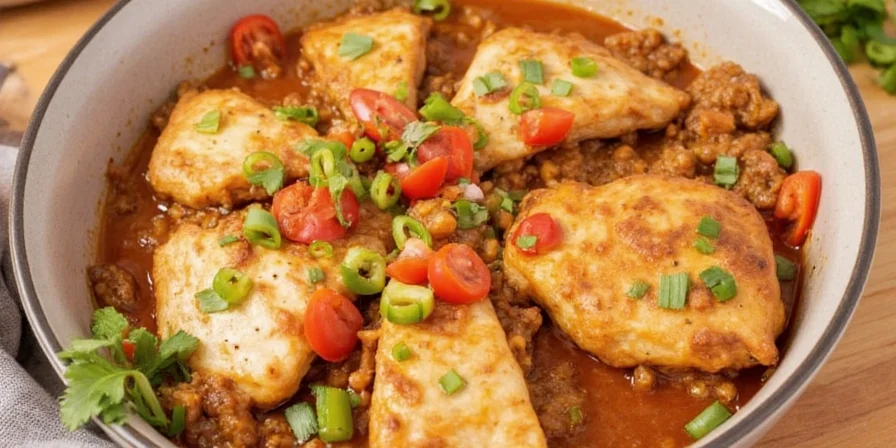
Easy Chicken Sofrito Recipe
What you'll need (basic ingredients):
- 1.5 lbs chicken thighs (bone-in, skin-on for best flavor)
- 2 yellow onions, finely chopped
- 1 bell pepper, diced
- 4 garlic cloves, minced
- 2 ripe tomatoes, chopped
- 2 tbsp olive oil
- 1 tsp cumin
- 1 tsp oregano
- Salt and pepper to taste
- 1/4 cup cilantro, chopped
Step-by-step instructions:
- Prep ingredients: Chop all vegetables uniformly (about 1/4-inch pieces) for even cooking.
- Sear chicken: Pat chicken dry, season with salt/pepper, and brown in hot oil (5-6 minutes per side). Remove and set aside.
- Build sofrito base: In same pot, sauté onions and peppers until soft (5 minutes). Add garlic and cook 1 minute until fragrant.
- Add tomatoes and spices: Stir in tomatoes, cumin, and oregano. Cook until liquid reduces by half (8-10 minutes).
- Braise chicken: Return chicken to pot, cover, and simmer on low heat for 30 minutes until chicken is tender.
- Finish: Stir in cilantro. Adjust seasoning. For thicker sauce, simmer uncovered 5 more minutes.
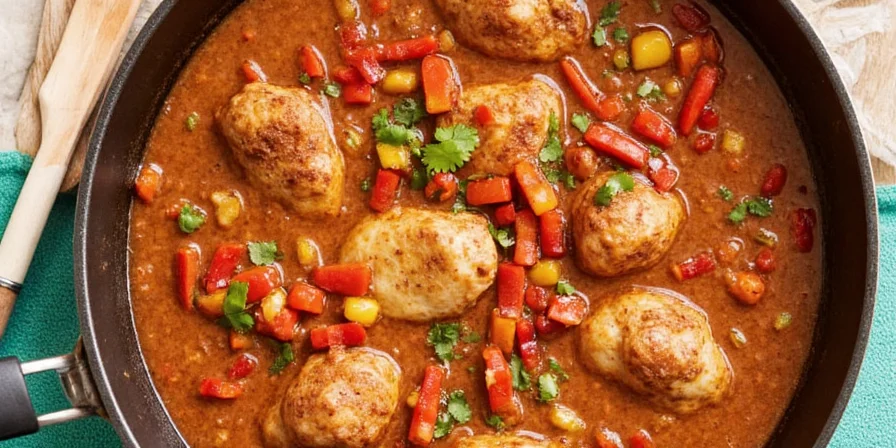
What Makes This Recipe Authentic
While many recipes cut corners, these key elements create genuine flavor:
| Ingredient | Why It Matters | Easy Substitutes |
|---|---|---|
| Chicken thighs | Fat content keeps meat moist during braising | Boneless thighs (reduce cook time by 10 minutes) |
| Fresh tomatoes | Better texture than canned; less acidic | 1 (14oz) can diced tomatoes (no salt added) |
| Cilantro | Essential fresh finish (different from culantro) | Parsley (not traditional but acceptable) |
| Olive oil | Carries flavor compounds better than neutral oils | Avocado oil (similar smoke point) |
7 Pro Tips for Perfect Chicken Sofrito
These simple adjustments make restaurant-quality results:
- Don't rush the sofrito base—cook until vegetables are completely soft (no crunch)
- Use a heavy pot (like Dutch oven) for even heat distribution
- Keep heat at medium-low during braising to prevent tough chicken
- Pat chicken dry before searing for better browning
- Add spices with tomatoes (not with onions) to prevent burning
- Don't skip the resting time—let sit 5 minutes before serving
- Make extra—flavor improves overnight as spices meld
Common Mistakes to Avoid
These errors ruin most homemade sofrito attempts:
- Using pre-minced garlic—loses potency quickly (always use fresh)
- Adding all liquid at once—dilutes flavors (build base first)
- Overcooking vegetables—burnt onions create bitter taste
- Skipping the sear—loses essential Maillard reaction flavors
- Stirring too often—prevents proper braising and browning
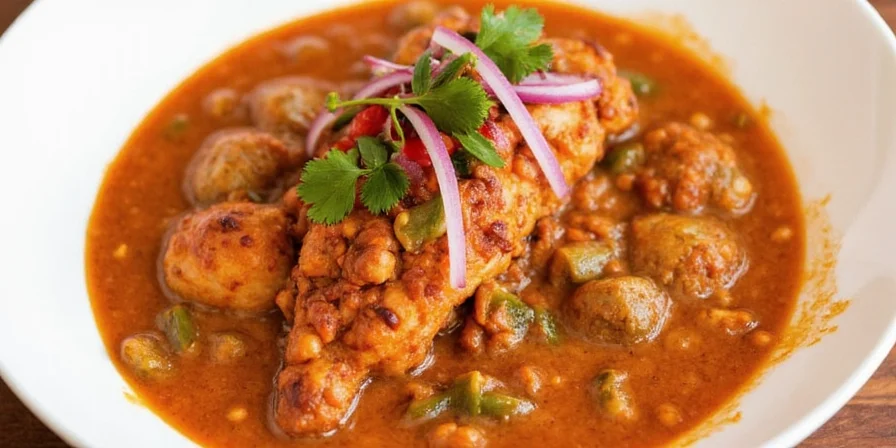
Best Side Dishes for Chicken Sofrito
Traditional pairings that complete the meal:
- White rice—absorbs the flavorful sauce perfectly
- Fried plantains (maduros)—sweetness balances savory sofrito
- Avocado slices—creamy texture complements the stew
- Black beans—adds protein and traditional flavor pairing
- Lime wedges—a squeeze brightens the entire dish
Regional Variations You Should Know
Chicken Sofrito changes across Latin America—here's what to expect:
| Region | Key Differences | How to Make It |
|---|---|---|
| Puerto Rican | Uses culantro (not cilantro), minimal tomato | Add recaito (cilantro base) and skip most tomatoes |
| Cuban | Tomato-heavy, includes cumin prominently | Use 1 extra tomato and double the cumin |
| Dominican | Vinegar-based, lighter color | Add 2 tbsp vinegar with tomatoes |
Frequently Asked Questions
How is Chicken Sofrito different from regular sofrito?
Regular sofrito is just the aromatic base (onions, peppers, garlic). Chicken Sofrito is the complete dish where chicken braises in that base. Think of sofrito as the foundation, and Chicken Sofrito as the finished house.
Can I make this in a slow cooker?
Yes! Sear chicken and build sofrito base in stovetop pan first, then transfer to slow cooker with all ingredients. Cook on LOW for 4-5 hours. The key is building flavor before slow cooking.
Why does my sofrito taste bitter?
This usually happens when onions or garlic burn. Fix: Cook vegetables on medium heat (not high), stir frequently, and add a splash of water if sticking occurs. Never walk away during the sofrito base stage!
How long does it keep in the fridge?
Chicken Sofrito tastes even better the next day! Store in airtight container for up to 4 days. The flavors continue to develop as spices meld. Reheat gently on stove (not microwave) to preserve texture.
Can I freeze Chicken Sofrito?
Absolutely. Freeze in portions for up to 3 months. Cool completely first, then store in freezer bags with sauce. Thaw overnight in fridge before reheating. Freezing actually improves flavor development!
Final Tips for Success
Chicken Sofrito should be your go-to weeknight meal—it's simple, affordable, and packed with authentic flavor. The secret isn't fancy ingredients, but proper technique: building the sofrito base slowly, searing chicken properly, and giving it enough time to braise.
When you serve this dish, you'll notice how the sauce clings perfectly to the chicken and rice. That's the mark of well-executed sofrito—neither watery nor paste-like, but rich and balanced. Make it once, and you'll understand why this dish has been a Latin American staple for generations.
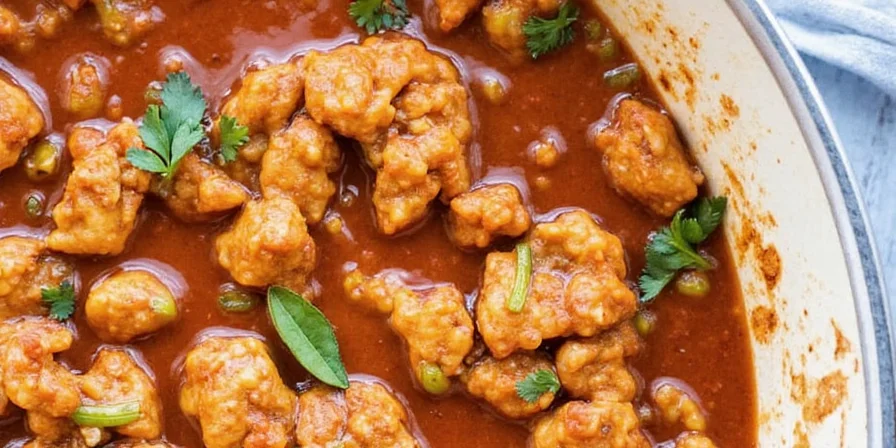

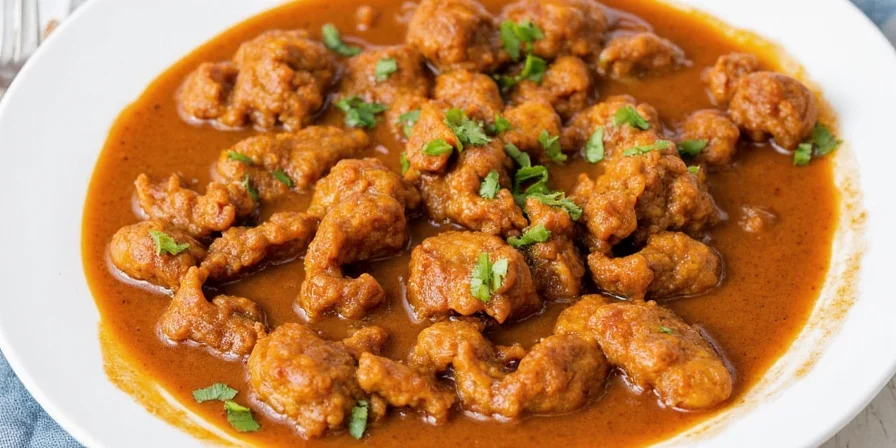









 浙公网安备
33010002000092号
浙公网安备
33010002000092号 浙B2-20120091-4
浙B2-20120091-4